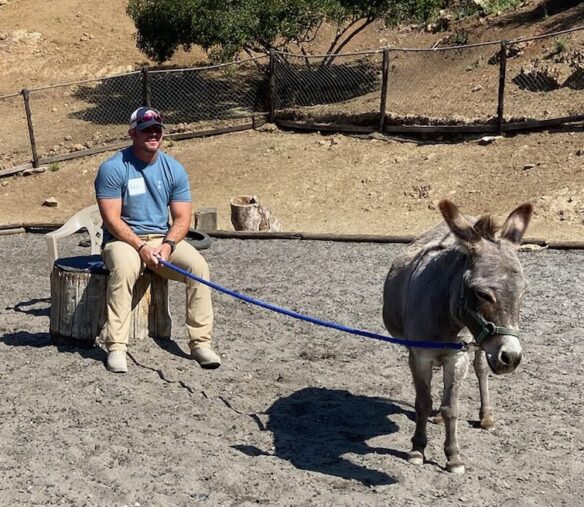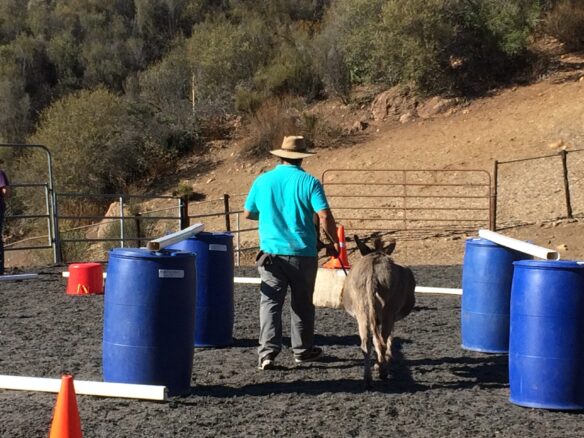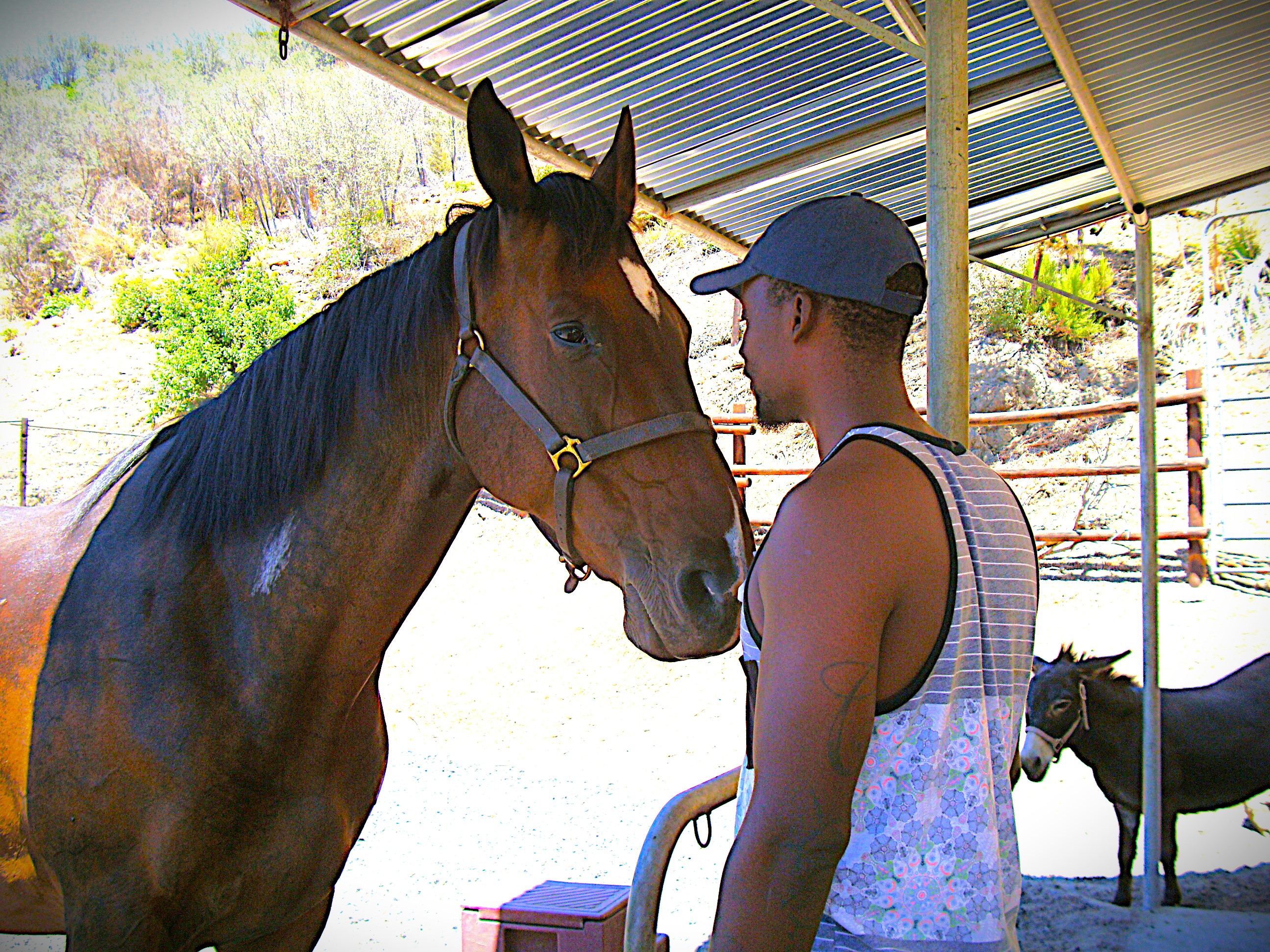 Change is inevitable. Nature flows beautifully with its change of seasons. A tree does not try to stop its leaves from falling, clinging to each one in hopes that it won’t fall to the ground, nor does the flower struggle against the opening of its petals to the sun as it blooms – it is the cycle of life. However, we humans often have a hard time adjusting to this truth and try to resist the natural process of change within and around us.
Change is inevitable. Nature flows beautifully with its change of seasons. A tree does not try to stop its leaves from falling, clinging to each one in hopes that it won’t fall to the ground, nor does the flower struggle against the opening of its petals to the sun as it blooms – it is the cycle of life. However, we humans often have a hard time adjusting to this truth and try to resist the natural process of change within and around us.
For instance, we try to slow the physical aging process with creams, dyes and surgical procedures, or we hold onto the idea of our sons and daughters as helpless children even as they grow into young adults and cultivate independent minds of their own.
Whether large or small, changes can be unsettling, even scary. A move to a new city, the end of a relationship, a career change, or a newly developed allergy; there are so many ways in which our lives are constantly evolving. What about the recent time change? How often do you lament the end of long summer days? When faced with change, we often decide we don’t want it and find ourselves fighting against something we have no control over.
It’s not a matter of whether or not change will happen, it’s a matter of how gracefully we can move through change. Change will happen – we promise.

Throughout the centuries horses (and donkeys) have partnered with us in change. As we have evolved as a species, our relationship with them has also evolved. We no longer rely on them to build our cities or take us from coast to coast. Our partnership has shifted to one of sport and recreation and grown to include physical and emotional healing.
One of the most important lessons these amazing prey animals have to teach us is about being present here and now. They are present to the constant change around them – tuned in, yet relaxed, trusting they can rely on their instincts to signal opportunities and danger. In a natural environment, a threatened horse will flee to a safe distance and then assess the situation. If it is safe, they go back to grazing, if it’s not they do what is needed to deal with the situation — they are fully present in the natural and current ebb and flow of life.
Equines also require us to be present in order to connect with them. Learning to stay connected with ourselves in the present moment enables us to acknowledge and embrace change. Instead of denying, resisting, or over-reacting to change, we can acknowledge our reactions emotionally, somatically, and intellectually and use this information to help us navigate the new terrain.
 This energy of change, of both inner and outer growth, is the foundation of our journey as humans. We live in a constant river of change, our body and psyche are never static; all that we are, all that we love, all that we know, is in an ongoing process of unfolding into new possibility. Yet, we often find ourselves resisting and avoiding the call to real change guiding us forward in our lives. We hold on to an expectation of how things should be for our happiness and in the holding, we fall out of alignment with the truth of our growth and our authentic selves.
This energy of change, of both inner and outer growth, is the foundation of our journey as humans. We live in a constant river of change, our body and psyche are never static; all that we are, all that we love, all that we know, is in an ongoing process of unfolding into new possibility. Yet, we often find ourselves resisting and avoiding the call to real change guiding us forward in our lives. We hold on to an expectation of how things should be for our happiness and in the holding, we fall out of alignment with the truth of our growth and our authentic selves.
So how can we learn to embrace change in order to experience the freedom that comes from going with the flow?
Here are 10 Tips for Embracing Change:
 #1 Reduce Expectations. When you set reasonable expectations, and don’t expect or demand a particular outcome, you’re better able to manage any changes that do come your way. Unreasonable expectations of life, however, will likely be met with loss, disappointment, and pain. Keep your expectations within a more manageable range. If you find that your expectations are constantly not being met, then perhaps it’s time to shift and reduce your expectations. This doesn’t mean you can’t want or hope for big things, it just means that you are open and flexible with the outcome of a situation.
#1 Reduce Expectations. When you set reasonable expectations, and don’t expect or demand a particular outcome, you’re better able to manage any changes that do come your way. Unreasonable expectations of life, however, will likely be met with loss, disappointment, and pain. Keep your expectations within a more manageable range. If you find that your expectations are constantly not being met, then perhaps it’s time to shift and reduce your expectations. This doesn’t mean you can’t want or hope for big things, it just means that you are open and flexible with the outcome of a situation.
 #2 Acknowledge & Accept Change. Be aware that change can happen in your life. This means understanding that things can and will be different from how they are now. Acknowledging change is allowing it to happen when it unfolds instead of approaching change from a place of denial and resistance. Instead of resisting, allow change to unfold and try to understand what’s transforming and why. Sometimes, circumstances will not turn out the way you want them to, and it’s perfectly alright. Embracing the situation can help you deal with the change effectively, make the necessary shifts in your life to embrace the change, and move forward after the event.
#2 Acknowledge & Accept Change. Be aware that change can happen in your life. This means understanding that things can and will be different from how they are now. Acknowledging change is allowing it to happen when it unfolds instead of approaching change from a place of denial and resistance. Instead of resisting, allow change to unfold and try to understand what’s transforming and why. Sometimes, circumstances will not turn out the way you want them to, and it’s perfectly alright. Embracing the situation can help you deal with the change effectively, make the necessary shifts in your life to embrace the change, and move forward after the event.
 #3 Silence your inner “know-it-all”. According to the eminent linguist Alton Becker, when asked what makes someone good at learning new languages, it helps not to be too smart: “Smart people don’t like having their minds changed, and to learn a language, you have to change your mind.” If you’re so smart that you can’t be flexible or rethink your positions, all of your IQ points won’t do you much good when your life is turned upside down. Becker’s advice applies across the board.
#3 Silence your inner “know-it-all”. According to the eminent linguist Alton Becker, when asked what makes someone good at learning new languages, it helps not to be too smart: “Smart people don’t like having their minds changed, and to learn a language, you have to change your mind.” If you’re so smart that you can’t be flexible or rethink your positions, all of your IQ points won’t do you much good when your life is turned upside down. Becker’s advice applies across the board.
 #4 Mother yourself a little. When familiar routines suddenly dissolve, it can seem as if all your supports are gone, giving a sense of free-fall. It’s crucial, while absorbing the shock of the new, to make yourself feel well taken care of. Prepare nutritious meals for the week ahead. If you can spare the cash, have someone come in and clean the house or do something you enjoy that relaxes you. Taking care of yourself will keep your batteries charged and give you more energy to manage changes.
#4 Mother yourself a little. When familiar routines suddenly dissolve, it can seem as if all your supports are gone, giving a sense of free-fall. It’s crucial, while absorbing the shock of the new, to make yourself feel well taken care of. Prepare nutritious meals for the week ahead. If you can spare the cash, have someone come in and clean the house or do something you enjoy that relaxes you. Taking care of yourself will keep your batteries charged and give you more energy to manage changes.
 #5 Don’t just do something; sit there! If you’re facing a massive rescaling of your life, your first impulse may be to go into a whirring spin of activity, but there’s a lot of value to sitting quietly instead. In the realm of language learning, there’s a stage called the silent period: Adults may try to avoid going through it, but if you take a kid and plop her down in Paris for a spell, she’ll naturally clam up for a few months. When she opens her mouth, her French will have flowered. Making sense of a major change is a lot like that. You need to allow yourself a fallow period before you can blossom.
#5 Don’t just do something; sit there! If you’re facing a massive rescaling of your life, your first impulse may be to go into a whirring spin of activity, but there’s a lot of value to sitting quietly instead. In the realm of language learning, there’s a stage called the silent period: Adults may try to avoid going through it, but if you take a kid and plop her down in Paris for a spell, she’ll naturally clam up for a few months. When she opens her mouth, her French will have flowered. Making sense of a major change is a lot like that. You need to allow yourself a fallow period before you can blossom.
 #6 Ask yourself, “What’s Next?” Questioning and contemplating future goals and wants opens you to a new world of possibilities. You begin to think bigger. You begin to ask yourself what’s possible, if only you could challenge yourself. When you ask yourself “what’s next”, embracing change has to be a part of that, or you are not really moving forward. What’s the point of making goals if it doesn’t make you get better, or change something for the better?
#6 Ask yourself, “What’s Next?” Questioning and contemplating future goals and wants opens you to a new world of possibilities. You begin to think bigger. You begin to ask yourself what’s possible, if only you could challenge yourself. When you ask yourself “what’s next”, embracing change has to be a part of that, or you are not really moving forward. What’s the point of making goals if it doesn’t make you get better, or change something for the better?
 #7 Seek out new perspectives. Zen practitioners cultivate the “don’t know” mind; they work to assume they don’t know anything and in that way see the world fresh. This is a great way to approach change―as an opportunity to start anew, to consider all possibilities. Ask naive, wide-eyed questions of anyone who is doing anything you might be interested in trying. Listen seriously to arguments you might once have dismissed.
#7 Seek out new perspectives. Zen practitioners cultivate the “don’t know” mind; they work to assume they don’t know anything and in that way see the world fresh. This is a great way to approach change―as an opportunity to start anew, to consider all possibilities. Ask naive, wide-eyed questions of anyone who is doing anything you might be interested in trying. Listen seriously to arguments you might once have dismissed.
 #8 Learn to live with uncertainty. That anxious feeling we often get when faced with new & different experiences does not signal that you’re doing something wrong, only that you’re charting landscapes that have been, until now, unknown to you. The vibrations of nervousness and excitement are fundamentally the same – it is only our perception of them, based on the circumstances we ascribe as related to them, that defines those feelings as “good” or “bad”. Try recognizing that uncertain feeling as excitement about a new possibility or anticipation of something great on its way. In actuality, that really is what it is, if you choose to perceive it as such.
#8 Learn to live with uncertainty. That anxious feeling we often get when faced with new & different experiences does not signal that you’re doing something wrong, only that you’re charting landscapes that have been, until now, unknown to you. The vibrations of nervousness and excitement are fundamentally the same – it is only our perception of them, based on the circumstances we ascribe as related to them, that defines those feelings as “good” or “bad”. Try recognizing that uncertain feeling as excitement about a new possibility or anticipation of something great on its way. In actuality, that really is what it is, if you choose to perceive it as such.
 #9 Learn from the experience. If you accept and embrace change, you will start looking for and finding lessons in it. Refusing to acknowledge dramatic changes happening in our lives, can leave us distraught and without meaning. Once we reflect back and finally accept the changes we go through as lessons, we are able to gain meaning from them. Change becomes our greatest teacher, but only if you give yourself permission to learn from it.
#9 Learn from the experience. If you accept and embrace change, you will start looking for and finding lessons in it. Refusing to acknowledge dramatic changes happening in our lives, can leave us distraught and without meaning. Once we reflect back and finally accept the changes we go through as lessons, we are able to gain meaning from them. Change becomes our greatest teacher, but only if you give yourself permission to learn from it.
 #10 Recognize that you are growing stronger. When you accept, embrace, and learn from change, you inevitably grow stronger. The ability to continuously accept change allows you to become as solid as a rock in the midst of violent storms all around you—even if you feel afraid. Knowing this as a positive result of change will help you have the internal motivation to embrace it. Embracing change may not be easy at first, it’s something that, like any new skill, takes practice but reminding ourselves of how moving gracefully through change will strengthen us will motivate us to keep at it.
#10 Recognize that you are growing stronger. When you accept, embrace, and learn from change, you inevitably grow stronger. The ability to continuously accept change allows you to become as solid as a rock in the midst of violent storms all around you—even if you feel afraid. Knowing this as a positive result of change will help you have the internal motivation to embrace it. Embracing change may not be easy at first, it’s something that, like any new skill, takes practice but reminding ourselves of how moving gracefully through change will strengthen us will motivate us to keep at it.
When we proactively embrace change and learn to accept it as a part of life, we are filled with more calmness, peace, and courage. When life fails to shake you up with its twists and turns, you realize that changes can’t break you. You’ve reached a level of understanding in life that some might even call wisdom.
sources:
http://www.realsimple.com/work-life/life-strategies/ways-to-embrace-change
Daniel Stewart – Mind, Body, Music
http://theaipaproject.com/embrace-change/
